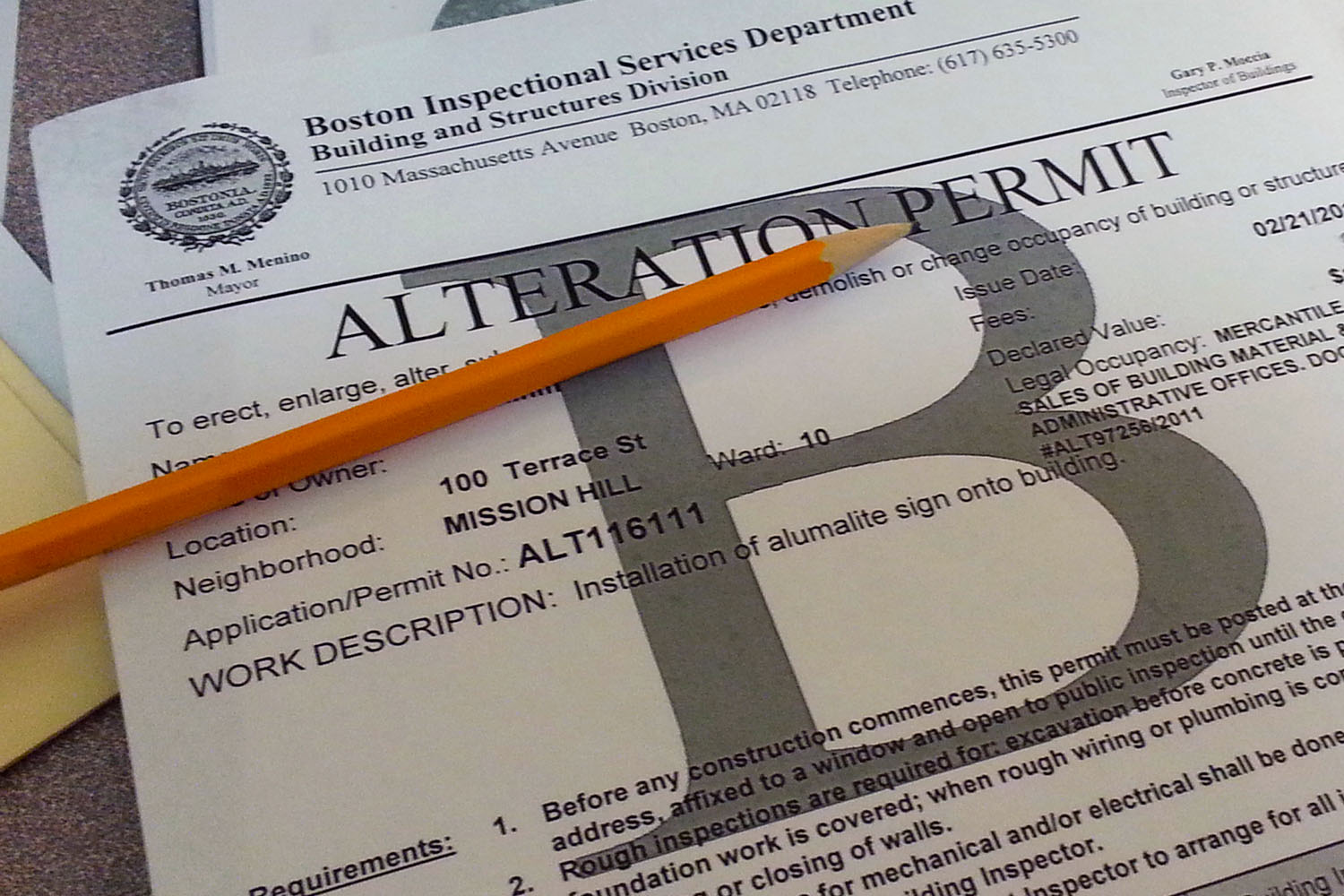Do I Need a Building Permit?
/When undertaking a home improvement project, it can seem like a hassle to go through the process of getting a building permit, and you may ask yourself if it’s really necessary. While some types of work do not require a permit, most significant projects do—with the goal of assuring that the work is done safely.
When, and Why, Is a Permit Needed?
According to the Massachusetts State Building Code (780 CMR, Section R105.1), building permits are required to “construct, re-construct, alter, repair, remove, or demolish a building or structure; or to change the use or occupancy of a building or structure; or to install or alter any equipment for which provision is made or the installation of which is regulated by the Massachusetts State Building Code.” This means that a permit is needed to cut away any wall or load-bearing support, such as a column, and to change or remove any means of egress or the supporting structure around it. Replacing windows, installing storm windows, and installing kitchen cabinets are all jobs that require a permit. If the renovation involves plumbing or electrical systems, separate permits may be required. Fire code permits may also be needed for some renovations, so be sure to research what is necessary for the specific work being done, according to the Mass.gov website.
Section 201 of the building code indicates that permits are not needed for ordinary repairs that can be defined as “any maintenance which does not affect the structure, egress, fire protection systems, fire ratings, energy conservation provisions, plumbing, sanitary, gas, electrical, or other utilities.” This includes painting, landscaping, adding shutters, fixing locks, working on gutters, fixing a driveway, and tiling. A permit is not needed to build a one-story detached building (such as a shed) provided the floor area doesn’t exceed 120 square feet, fences no taller than six feet, and some retaining walls. The state building code allows individual municipalities to enact stricter codes, so be sure to check with your city or town building department.
The purpose of requiring a building permit is to prevent bad workmanship, which can lead to dangerous conditions. When an inspector reviews the work, he or she can verify that the code is being followed and vouch for the quality of construction. If work is done without a permit, especially electrical work or plumbing, it can lead to dangerous circumstances such as fire or burst pipes. If carpentry work is not done correctly, a roof or deck may collapse, for example.
Obtaining a Permit
Building permit applications can usually be completed online or in person. It is possible to apply online in most municipalities, as long as one has the capability to attach the required materials, print the permit, and pay with a credit card. Boston residents can apply online for a short-form permit on the city’s website, and long-form permits can be initiated online. Homeowners in other towns should consult the local building department’s website. To obtain a building permit in person, the owner of the structure or an authorized representative must go to the inspectional services division of their city's or town’s building department. In Boston, this is located on the 5th floor of 1010 Mass. Ave. A contractor or builder can (and should) obtain the permit as long as they have a signed contract or letter from the owner authorizing them to sign the application on their behalf. To do this, the contractor must be a registered Home Improvement Contractor. HIC registration means that homeowners have consumer protections against substandard work through the state’s Guaranty Fund. Hiring a contractor without an HIC license is not recommended.
In Boston, a short-form permit is “for MINOR alterations to an existing building that will not change the use, egress, or increase living space or fire protection of the existing building.” Drawings are not necessary, and the cost is $20 plus $10 for every $1,000 of the stated cost of the project. Thus, if your renovation project costs $5,000, the short-form permit fee will be $70. The long-form permit is for new buildings or additions, structural repairs or changes, changes to occupancy and use, and increasing capacity. A long-form permit requires construction drawings, and costs $50 plus $10 for every $1,000 of work.
Work cannot begin until the building permit card is posted at the job site. Building permits are valid for six months, meaning that the work must begin within six months of the date of issuance and continue without interruption until the project is finished. After that, if the work has not started, a new permit will be required. In certain cases, the permit can be renewed by the building commissioner for up to 180 days.
Risks and Ramifications of Unpermitted Work
If work is done on a home without the required permits, this can create legal problems. If local officials find out that changes were made to a building without the proper permits, there can be penalties for the owner and the contractors involved. Officials will require that a permit be acquired for work already done, and the cost of the permit is usually doubled. All documents will need to be submitted, and all the work must conform to code.
Further, when a house is sold, the new owner inherits the requirement to have the proper permits for all past work. This means that trying to sell a house where unpermitted work was done can be difficult, because the new owner won’t want to risk the liability and the possibility that the work was not done properly. When a contractor is allowed to do work without a permit, he or she may take the opportunity to cut corners to save money, resulting in unsafe work that will put the occupants at risk.
Though it may seem like a hassle, obtaining the proper permits before renovating is the right thing to do in order to prevent safety hazards and legal headaches in the future.
—Kelly Gallagher

